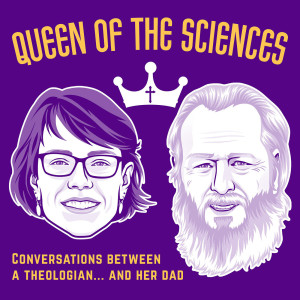
Tuesday Jan 28, 2020
Poor Anselm
Poor Anselm, the favorite medieval-scholastic whipping boy of apparently enlightened moderns. Outraged at the attack on Anselm's honor, Dad and I endeavor to make satisfaction for his slandered reputation, give the best and most charitable account of his atonement theory, make some slight tweaks to it in a Lutheran-ish direction while taking serious issue with Gustaf Aulén's attempt to do the same, and overall make the case that the Anselmian concern for justice and recompense is not nearly as foreign to our sensibilities nowadays as his cultured despisers like to claim.
Notes:
1. Anselm of Canterbury’s Cur Deus Homo can be found in A Scholastic Miscellany
2. Gustaf Aulén, Christus Victor
3. Karl Barth, Anselm: Fides Quaerens Intellectum
4. The Nominalists, from the Latin nomen (“name”), were a school of late medieval philosophers who held that concepts do not exist in reality (opposing the position of the “realists”) but are only names that human beings create to categorize or classify really existing things or persons. As Dad explains to students: “To me, the tree stump along the Appalachian Trail is a chair, but to a termite, it’s a meal.” While we’re at it, Dad—who once described himself as anti-Kantian par excellence, has co-authored a book arguing that Kant is just Plato continued by other means, and has written another book on the confrontation between biblical and philosophical monotheism in the Arian controversy (Divine Complexity)—discusses the various atonement “theories” in chapter 3 of Luther and the Beloved Community.
5. The divine dei in Greek means “it is necessary”
6. Anselm’s definition of God as “that than which nothing greater can be conceived” is found in his work the Proslogion
7. Brandt Jean’s victim-impact statement
8. Friedrich Nietzsche talks about the “evil genius” of God dying for His debtors in Beyond Good and Evil
9. A major source for Luther’s christology is his Confession Concerning Christ’s Supper
10. The Tome of Leo is a patristic document supporting the two natures of Christ but at the cost of assigning very different duties to each nature in a hermetically sealed kind of way
11. admirabile commercium = joyful exchange (in Latin)
12. Peter Abelard gave his version of “atonement” theology in his commentary on Romans, an excerpt of which is also in A Scholastic Miscellany
13. Gerhard O. Forde, “The Work of Christ: Atonement as Actual Event,” in Christian Dogmatics vol. 2
14. Hans Urs von Balthasar writes about Luther’s doctrine of atonement in Theo-Drama vol. 4
15. Gustaf Aulén’s later book is The Faith of the Christian Church
More about us at sarahhinlickywilson.com and paulhinlicky.com!
No comments yet. Be the first to say something!